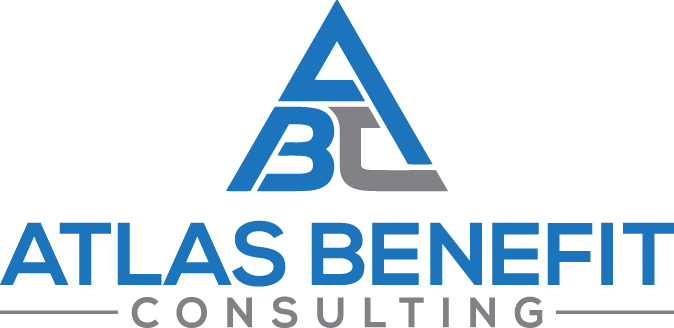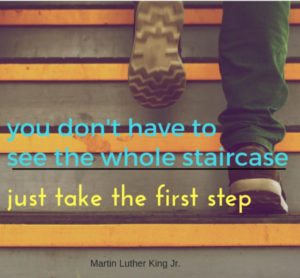From Part 1 of Holiday Help: “Christmas can be a beautiful but extremely difficult time of year for many veterans, active military, and their families. ‘It’s the Most Wonderful Time of the Year’ can feel like a cruel joke for some who are experiencing loneliness, sadness, financial difficulties, PTSD or separation from their families and friends.”
The holiday season can feel especially hard and dark for veterans. Whether from physical ailments that prevent them from doing things easily or the traditional way, or emotional and mental struggles that make things feel heavy and void of the joy and happiness they long for or see in others, getting through this time of year can be challenging.
Let’s each do our part to crush the stigma that seeking mental or emotional help and assistance means anything negative at all. If we collectively support and take a stand for mental health being of upmost importance for all people, especially veterans, we can encourage those who could benefit from help to seek it.
Staying silent does NOT mean being strong!
Below are some resources for PTSD, depression, anxiety, extreme loneliness, and many other things veterans may be dealing with even more during the winter. Taking even one small step forward can mean the difference between suffering and feeling proactive and getting some help and relief.
*Find Outside Help and Assistance:
This is a crucial step, and oftentimes the hardest one for someone to make. Not every resource is perfect for every person, so trying something out can be helpful in determining what options will make a difference.
- Operation We Are Here helps by connecting you with counseling and other mental health treatment options: https://www.operationwearehere.com/Counseling.html
- Contact your local Veteran Center. They offer free and confidential individual and group counseling and resources: https://www.vetcenter.va.gov/
- The VA lists resources by topic, making it easier to find something that may be much more specific to a veteran’s individual need: https://www.mentalhealth.va.gov/
- Learn about and make strides towards dealing with PTSD: https://www.ptsd.va.gov/
- If you are at risk of or facing homelessness: https://www.va.gov/homeless/nationalcallcenter.asp
- Take a free online mental health test, which will also connect you with tools and resources after to help: https://screening.mhanational.org/screening-tools
- USA Cares Veteran & Family Support System provides advocacy and financial assistance for veterans and military: https://usacares.org/programs
- Military OneSource can help you find support with what you are experiencing: https://www.militaryonesource.mil/health-wellness/mental-health/mental-health-resources/
- Check out this guide on working through flashbacks, nightmares, intrusive thoughts, survivors guilt and more. This could be a helpful resource in conjunction with also receiving professional help. (Scroll down to section 5 & 6 for this specific part.) https://www.helpguide.org/articles/ptsd-trauma/ptsd-in-military-veterans.htm
*Connect with others:
Being involved with other people is so important for all of our mental health and overall wellbeing.
- Understand that you are NOT alone. There are many others who have felt, or are experiencing, what you are going through. Make the Connection is a great resource for being able to hear about others’ experiences and connect with local resources: https://www.maketheconnection.net/
- Make plans with a friend (old or new) for at least 1-2 times monthly. It’s helpful to have that time to connect with someone and have plans you look forward to.
- Research and find out if there is a local support group you could join. If not, consider starting your own. The most important things to look for, or to offer in your own group, are a safe place for anyone to be totally vulnerable and share, no judgement, and encouragement and accountability with each other.
- Volunteer. There is a reason that therapists and mental health experts continuously recommend that people volunteer somewhere on a regular basis. Putting ourselves in a place where we can make a difference helps us connect with other people and feel more powerful within.
*Solo Steps That Can Make a Difference:
Once you are getting help, these tools can be a resource for additional progress and relief.
- Get physical if at all possible– Simple movements or exercise can help rid your body of excess adrenaline (which can cause or increase stress, anxiety, physical symptoms) and produce endorphins, which lift the mood. Depending on your level of mobility, go for a walk, hike, swim, dance, or take an exercise class. If mobility is challenging, reach out for physical therapy options, which can also make a big difference.
- Go outdoors– Nature can be extremely therapeutic and help you stay present and go outside of the struggles for a while.
- Learn to self-regulate:
- Mindful breathing. Here is a video to teach you how to do this: https://www.helpguide.org/meditations/mindful-breathing-meditation.htm
- Find something to focus on that helps when you are overloaded by stimuli (loud noises, too many people around, physical sensations, chaos, etc). Music, being outside, looking through memories that elicit happy feelings, a certain smell, a quiet place to sit…whatever is it, try until you find an activity that calms you when your senses become overloaded.
- Allow yourself to feel your emotions. Pushing emotions down or trying to avoid them actually leads to more intense symptoms and mentally worsening conditions. Find a safe place to do this. This emotional intelligence toolkit may be a helpful place to start and practice: https://www.helpguide.org/articles/mental-health/emotional-intelligence-toolkit.htm
- Take Care of Your Body
- Nourishing ourselves from the inside out can make a difference on our moods and mental state. Avoid excess sugar, processed or fast foods, etc., as much as possible for more even energy and mood levels.
- It sounds cliché, but take time to relax. It could be stretching, time outside, meditation, massage, a hot soak, or whatever it is that makes you able to wind down a bit.
- Get some shut eye. Sleep deprivation elevates our stress, anger, irritability, inability to focus and handle things, and worsens our moods. A calming routine that works for you is helpful to practice before bed each night to get into a more natural state of sleep expectation. Experiment until you find your calming routine.
- Avoid alcohol and drugs. Both are proven to make symptoms of PTSD worse, and are at best numbing mechanisms that prolong the healing process.
We encourage you to take a step and try at least one idea or resource and reach out to someone. Support is key. You are NOT alone, and seeking help and connection makes you STRONG!





